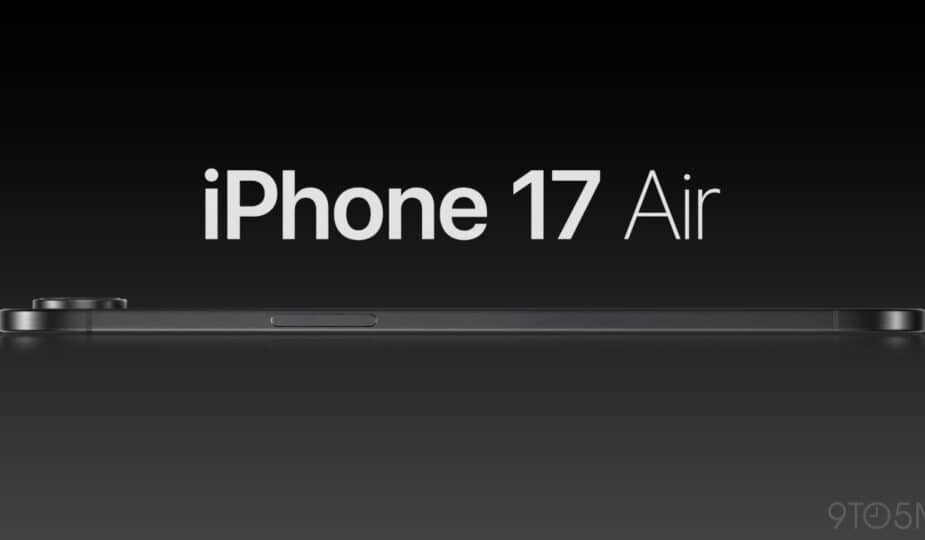
A new report from The Information today once again highlights Apple’s work on an ultra-thin “iPhone 17 Air” that’s set to launch next year. According to the report, iPhone 17 Air prototypes are between 5 and 6 millimeters thick, which is significantly thinner than the iPhone 16’s 7.8 mm thickness.
The push to make the device as thin as possible has reportedly put Apple’s engineers in a few tricky spots…
First, The Information cites multiple sources who say Apple’s engineers are “having a hard time fitting the battery and thermal materials into the device.” An earlier supply chain report also detailed Apple's difficulties with battery technology for the iPhone 17 Air.
Currently, the iPhone 6 holds the title of Apple’s thinnest iPhone. It was 6.9mm thick, while the iPhone 6 Plus was 7.1mm thick. The 11-inch iPad Pro M4 is only 5.4mm thick, while the 13-inch iPad Pro is 5.1mm thick.
- iPhone 16: 7.80mm
- iPhone 16 Plus: 7.80mm
- iPhone 16 Pro: 8.25mm
- iPhone 16 Pro Max: 8.25mm
Additionally, the report states that the iPhone 17 Air will only have a single speaker due to its super-thin design. Current iPhone models have a second speaker at the bottom.
Apple is making compromises in other aspects of the thin iPhone’s design to keep it thin. For example, the thin iPhone will only have a single earpiece speaker because there’s no room for a second speaker on the bottom, which is standard on other models, one person said.
Best comment from Pleep_Ploop
So far… if these compromises are true (and I suspect they’re not), they don’t make a thinner phone very appealing.
View all comments
The Information also reiterates that the iPhone 17 Air will have a single camera on the back, housed in a “large central camera bump.”
According to the report, the iPhone 17 Air will be “one of the first iPhones” to use Apple’s built-in 5G modem. However, for now, Apple's modem still can't match Qualcomm's 5G chips in terms of performance, even though it's more efficient. It also doesn't support mmWave 5G:
However, Apple's built-in modem doesn't perform as well as Qualcomm's modem. Its peak speeds are slower, and its ability to stay connected to cellular networks is slightly less reliable, the source said. And Apple's built-in modem doesn't support millimeter wave, a technology introduced in the iPhone 12 that enables faster cellular speeds in certain areas.
Finally, The Information reports that Apple engineers haven't yet found a way to fit a physical SIM tray into the iPhone 17 Air. While Apple is phasing out physical SIM cards in the United States and other countries, phones sold in China still require a SIM slot.
“Chinese carriers do not support eSIM for mobile phones due to the risk that the system will not allow carriers to verify each user’s personal identity,” said Edison Li, head of China technology, telecoms and software research at Jefferies. “China is introducing a real-name registration system for all mobile device users, and as a result, telcos generally do not support eSIM except for the Apple Watch and iPad.”
The iPhone 17 Air is reportedly in the early stages of production testing at a Foxconn plant and recently moved from proto-1 to proto-2 status.









